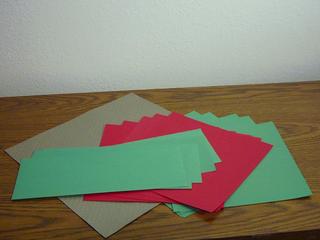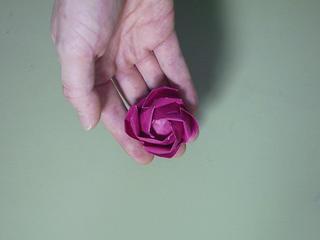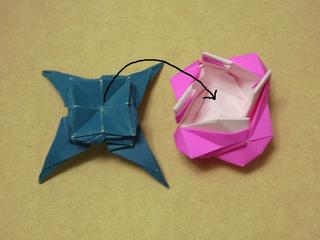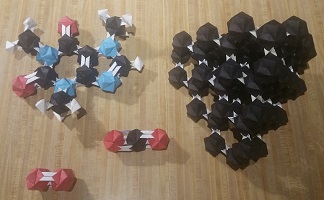Origami Diagrams

Welcome to the DofTNet Diagrams page. This is the place to be if you're looking to fold something right now. DofT presents to you for your personal enjoyment the following instructions:
- A modified version of Kawasaki's Rose along with a calyx and stem of my own design.
- Origamic Chemistry - Modular Molecule Models. This section, to which we have finally posted some updates, outlines how to use origami in your next project for chemistry class or just to have an all-around super cool (or super geeky) origami item.
Photos and descriptions ©2018 by DofTNet Enterprises is licensed under CC BY-SA 4.0
This is what you're all really here for. Dan of Toasters' modified Kawasaki's Rose: The most popular area of this site. This is similar to the one found in Origami for the Connoisseur. Originally designed by Toshikazu Kawasaki, DofT have made some changes to account for his own sense of aesthetics as well as allow for the attachment of the calyx.
This is a base design that DofT came up with for use with the modified version of one of Kawasaki's roses that he show here. This base design was inspired by one of Toshikazu Kawasaki's other designs - the spiral snail shell - which can also be found in Origami for the Connoisseur.
Having a nice rose and base to match is all very well, but you know.. it's much easier to display it in a vase or something when there's also a stem attached. Well this is the stem that DofT came up with.
This is the home for DofT's method of building origami molecule models like the ones shown here.
Of course, you can't have molecules without atoms. These are the instructions for folding the variation of the sonobe unit that are built up into the various atoms.
Another critical factor in building molecules are the chemical bonds that hold the atoms together. These are various units to represent different sorts of shared electrons between atoms. Currently we have instructions for one type of sigma bond - the basic sort of single covalent bond between two atoms. More to come as DofT managed to get more instructions posted.
Now how do all these peices go together? There's a section on how to assemble the sonobe modules into 12 and 3 unit constructions, and another on how to attach the bond units to the atoms to actually build a complete molecule.







